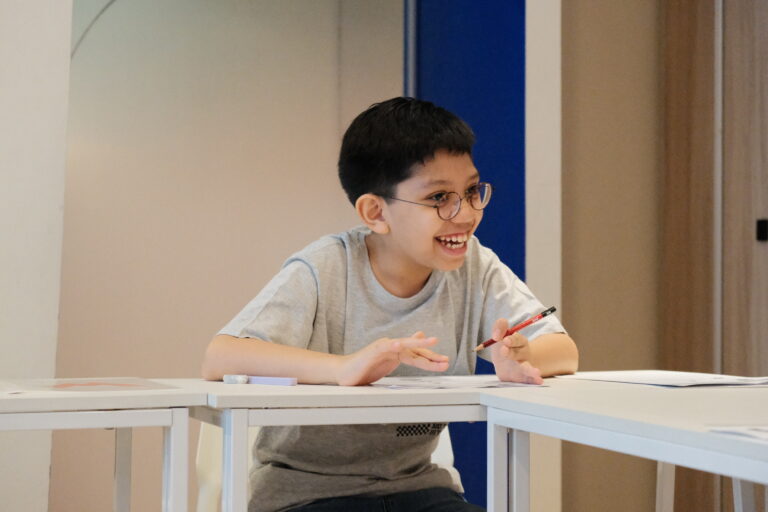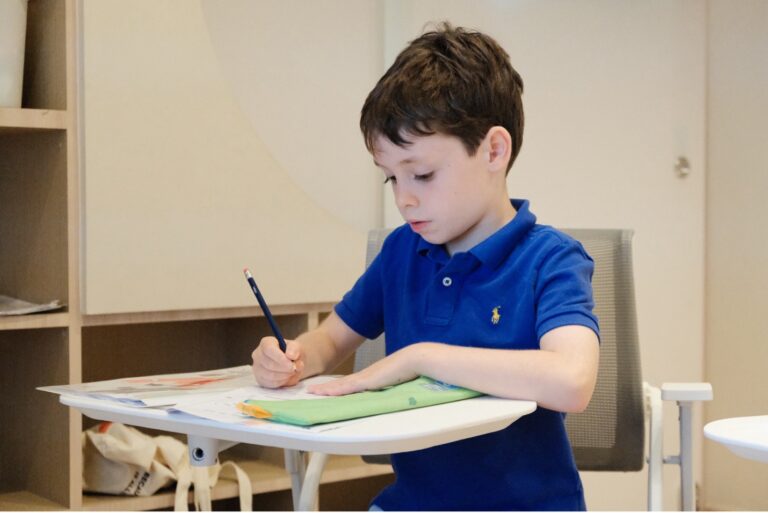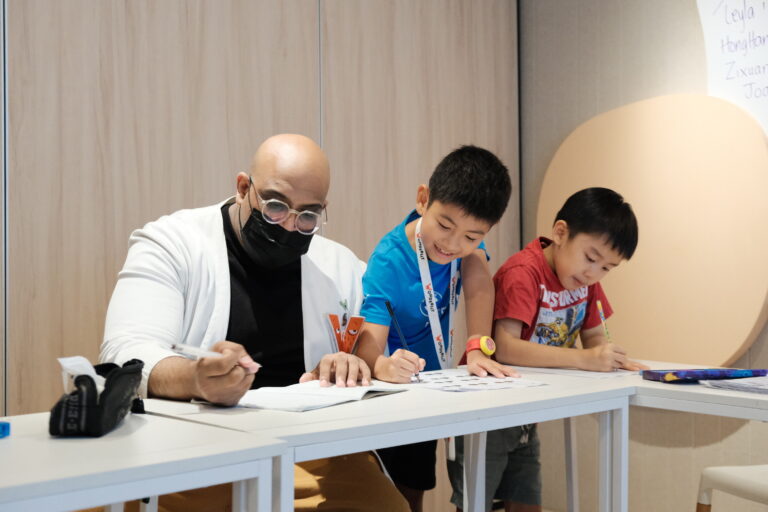
How to Foster Children's Self-Expression through Creative Writing

It goes without saying that adults and children view the world in a different light; children have a unique way of experiencing the world around them. Their emotions often run deep, yet they may lack the words to express what’s going on in their little hearts and minds.This is where creative writing comes into play! Through storytelling, kids find a transformative and powerful outlet for their thoughts, feelings, and even dreams. In this article, we share how creative writing can become a valuable lifeline for children who struggle to communicate verbally, and how through this activity that it creates a safe space for self-discovery and emotional release.
Why Do Some Children Struggle to Speak?
Raising confident communicators is undeniably important – that said, naturally shy children may take more time than others to express themselves. Understanding why certain children find it harder to express their emotions in an open way can depend on a number of things. Social anxiety, introversion, shyness, or past experiences that made them feel misunderstood or unheard are just a few of these.
For these children, the world can be a daunting place. The pressure to articulate emotions and thoughts can be overwhelming, leading to internal frustration and eventual silence. As such, it is crucial for teachers, parents, as well as caregivers to recognise these struggles and provide alternative means of expression.
Why is Creative Writing a Sanctuary For Children?

Creative writing, in all its forms, offers a solution for children seeking to express themselves without the constraints of verbal communication. Through the art of crafting stories, kids can shape their personal experiences into engaging narratives. This way, they can explore difficult situations and complex emotions and even find solutions within the framework of a story. This can be particularly therapeutic for children dealing with challenging life events.
There are many benefits in which this expressive medium becomes a sanctuary for their emotions, such as;
- Confidence Building: As kids put their thoughts into words on paper, they gain confidence in their ability to communicate effectively. This newfound confidence can extend to their verbal communication as well, helping them overcome their initial struggles.
Moreover, children frequently discover more about themselves through writing, including their interests and what is most important to them. This self-awareness is a crucial first step in managing and comprehending their emotions.
- Freedom of Expression: Children are free to explore their imagination, feelings, and thoughts without fear of judgement. This freedom that comes with creative writing encourages them to open up and release the emotions they may have kept bottled inside for the longest time.
How Does Creative Writing Becomes a Form of Therapy?

Creative writing is more than mere storytelling; it is a form of therapy for many kids who struggle to express themselves verbally. Through the following, it becomes a healing process;
- Validation: When children see their emotions and thoughts on paper, it validates their experiences. They realise their emotions are valid, and this validation can be a powerful boost to their self-esteem.
- Emotional Release: Writing allows one to release pent-up emotions in a constructive and healthy manner – it feels like emptying a backpack full of feelings, making room for growth and positivity!
- Empathy: Through storytelling, children can learn to understand and empathise with the characters they create. This empathy may just as well extend to their interactions with others, fostering better relationships and communication with others.
How Can You Support Your Child’s Creative Writing Journey?

Does your child struggle with expressing themselves and find solace and empowerment in creative writing? Below are some ways you can support their journey further;
- Encourage Regular Writing: Set aside time each day for your child to write. They can do so by keeping a journal near them, like their bedside table, so that they can easily reach out to it each time they have the urge to write diary entries, poems, or short stories.
- Create a Writing Space: Dedicate a comfortable and quiet space for your child to write. Provide them with the tools they need, whether it’s a computer, journal, or notebook.
- Be a Supportive Listener: When your child is ready to share their writing, be a non-judgemental and receptive listener! Ask questions about their feelings and stories to encourage discussion, but it would be recommended to do so only if they are comfortable with sharing. Otherwise, they might fall back into their shell if it all gets too overwhelming.
- Enrol Them in Classes: Writer’s block is a real thing – it happens to the best of us. To help them improve their vocabulary and expand their learning, there are plenty of creative writing classes for children that you could sign your child up for. Take the Wonderlit Write programme, for example, where we encourage children to exercise their creative imagination and develop their own unique voices as they master techniques of language use!
Final Thoughts
As parents, it is our role to recognise and nurture this incredible outlet for emotional expression, especially in the 21st century, where it often demands verbal expression. Creative writing can become the children’s voice, and by nurturing this outlet for them, we can help kids find the words they need to navigate their emotions and share their unique stories with the world. For one, they may even discover that the power of words can truly change their lives, one story at a time. Who knows what incredible stories and emotions they might discover through creative writing?
If you’re ready to encourage your child to open that notebook and pick up that pen or type on that keyboard, then let Wonderlit guide you through this journey of self-discovery for your child! As a premier English enrichment centre in Singapore, we seek to unlock creativity and develop effective and confident communicators for life, whether it be through our creative writing lessons or English phonics classes. Drop us an enquiry to find out more or speak to our programme consultants at 6980 5670 via WhatsApp or call!
Recent Posts


How To Nurture Oral Language Development in Children

Story Builders: How Reading Shapes Writing In Kids

4 Fun Ways To Nurture Children’s Love For Performing

Importance of English Phonics for Young Learners

